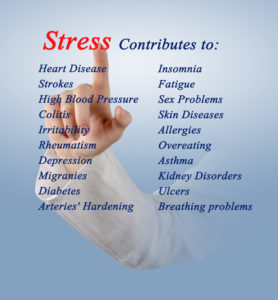I was shocked to read an article recently in the Brisbane Sunday Mail Body and Soul magazine alerting us all to what has become the most serious health threat facing Australian women. It goes on to say, “Heart disease claims more lives of Australian women than men and it is not just a health problem suffered by the elderly.”
 Think about this, it’s a very sobering thought; every hour, an Australian woman dies of heart disease.
Think about this, it’s a very sobering thought; every hour, an Australian woman dies of heart disease.
Looking around the Globe the situation doesn’t appear to get any better. Heart disease statistics from the US show it is the #1 killer of women and is more deadly than all forms of cancer combined.
Quite a wake-up call isn’t it although it would appear from the figures many women simply aren’t taking any action. Is it they don’t see heart disease as something that will affect them? I can’t answer that question.
In this article, Health and Quality of Life are Bigger Heart Attack Risk Factors for Women, the writer states, “Women ages 18-55 years old tend to be less healthy and have a poorer quality of life than similar-aged men before suffering a heart attack, according to research presented at the American Heart Association’s Quality of Care and Outcomes Research Scientific Sessions 2013”.
Heart health doesn’t happen by itself and it usually doesn’t happen overnight. It is generally the culmination of many years of poor food choices, lack of exercise and other stress related lifestyle issues.
But there are some decisions you can make today that can start you on a path towards having a healthy heart.
Here are six simple things to boost your heart health so you don’t fall victim to heart attacks, strokes, or peripheral vascular disease:
1. Have a spring clean of your fridge and pantry.
There are things you can eat that will increase your risk for heart disease, just as there are things you can eat that will reduce your risk of heart disease.
Check for foods high in cholesterol, such as processed meats, high fat dairy products, and most processed foods. Processed foods are high in bad fats, such as trans fats, although the US government has made progress in reducing trans fats in the foods you purchase.
Look out for foods high in dietary sugar and replace them with low sugar foods and foods which contain no sugar. Instead of eating lots of red meat, fatty fish such as salmon which is high in omega 3 fatty acids and are considered heart and brain healthy.
Instead of cakes and biscuits, you can satisfy your sweet tooth with whole fruits, which are high in dietary fibre and antioxidants and have health benefits you can’t get through eating low fibre, high sugar foods.
Also, ask yourself this question; “Are You a Serious Cereal Offender“? Breakfast cereals in a box are mostly high sugar low food value foods and are best left on the supermarket shelf.
2. Start an exercise program.
This means getting off the couch and getting out there to do some form of aerobic exercise. Aerobic exercise is particularly good at increasing your heart rate, increasing your respiratory rate, and lowering your blood pressure.
You should aim to do some form of aerobic exercise for at least 30 minutes per day on most days of the week.
 Aerobic exercises you can do include brisk walking, running, jogging, using a stair-stepper, cycling, rowing and swimming or gym classes.
Aerobic exercises you can do include brisk walking, running, jogging, using a stair-stepper, cycling, rowing and swimming or gym classes.
Swimming is low impact and is especially good for people who want to exercise but cannot tolerate the wear and tear on their joints.
You should also consider doing some kind of weight training about two days per week.
Weight training tones muscles and increases your basal metabolic rate so you can burn calories more effectively, even without exercising. You should try and make exercise a family affair so you can do things as a group and reduce all of your family’s risks of heart disease. It is much more fun too.
3. Schedule a blood sugar screening.
You can reduce your risk of heart disease by having your blood sugar checked for the presence of diabetes or pre-diabetes.
Both conditions can be detected by doing a fasting blood test. Values of blood glucose that are between 100 and 125 on a fasting basis mean you have pre-diabetes and should follow your blood sugars more closely so you don’t develop diabetes mellitus.
Fasting blood sugars of 125 or more mean you have diabetes and must do things like lower your blood glucose levels such as eat a low sugar diet, exercise, and take medications to reduce your blood sugar.
Diabetes is a risk factor for heart disease but it is a risk factor you can reverse if you follow your doctor’s instructions.
4. Have a cholesterol check.
Cholesterol in your bloodstream can cause a buildup of cholesterol-containing plaques that increase the risk of blood clots which can cause various types of heart disease.
You can lower your cholesterol by eating foods low in cholesterol and saturated fats, or by taking medication that will lower your cholesterol level, and engaging in a regular exercise program and this will help keep heart disease at bay.
5. Do a study of your sleep patterns.
If you are told you snore, you may be suffering from sleep apnea, which is a known risk factor for heart disease.
When you have sleep apnea, you stop breathing during your sleep and wake up suddenly, gasping for air even though you don’t remember it in the morning. Sleep apnea will raise your blood pressure during the day, not to mention it makes you tired during the daytime.
If you are effectively diagnosed with sleep apnea and undergo treatment (which can mean using continuous positive airway pressure or CPAP, or make steps to reduce your weight), you can lessen your risk for heart disease and can have a better quality of life.
6. Reduce your stress levels.
 Most of us live in a fast paced world of family and job responsibilities……and unfortunately, they cause us to live on the edge a lot of the time.
Most of us live in a fast paced world of family and job responsibilities……and unfortunately, they cause us to live on the edge a lot of the time.
Stress will raise your blood pressure and your heart rate, both causing you to have an increased risk of stress on your heart so try and find a bit of “me” time.
You can reduce stress by avoiding those things causing you to be stressed and can learn the art of several stress-reducing practices including meditation, yoga, tai chi, and qi dong.
Some of these practices have more benefit to your body besides reducing stress, such as increasing flexibility, strength, and balance so it offers the best of both worlds.
Closing comment:
In the long run medication can only do so much. William H Johnsen once said, “If it is to be, it’s up to me” so by altering your lifestyle you are being proactive in the fight against heart disease because once the heart is damaged it can’t be undone.
Medicine can minimize the impact but only you are in a position to control the long term preventative steps to your own hearts health.
Take care and share with a friend…….it is a long journey.
Leave a Reply